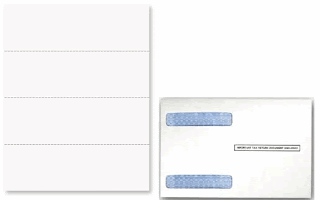
When preparing to process payrolls for the beginning of a new year, it's important to keep a few things in mind:
1. If you are using a computerized payroll processing program, make sure you pay any renewal fees ahead of time in order to acquire any updates needed for the next year's tax withholding tables. You will also possibly need your state unemployment rates handy to set up before the system will allow you to generate payrolls. If you are unable to generate a payroll with dates for the new year, contact your software technical support for further information and help. It's always a good idea to conduct and early attempt at a 'dummy' payroll that can be deleted at a later time just to make sure you are ready to go before the actual day. This can cause many frustrating issues when dealing with banking deadlines for direct deposit services, especially with the New Year's holiday.
2. When processing payroll information manually, it's important to be sure you have an updated set of 2009 Federal and MO State (or whichever state is applicable for your business) as well as any Local tax table rates handy as some they change from year to year. Many of these tables can be found online for your convenience.
3. If you have an outside payroll processing service, be sure you have given them your updated unemployment rates, as these forms often are mailed directly to the business address on file and not to your specific preparer.
As always think ahead, pay early and be prepared!





